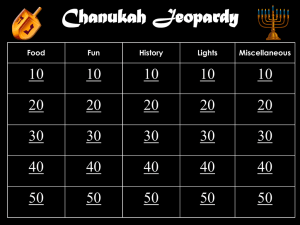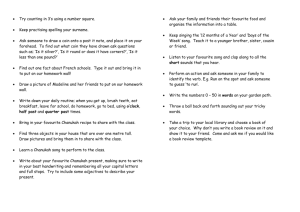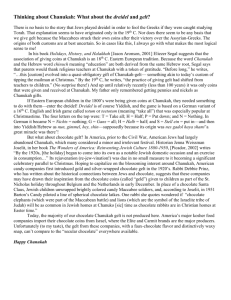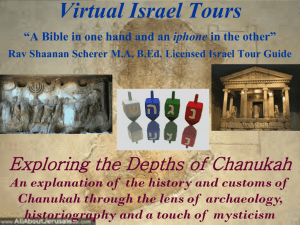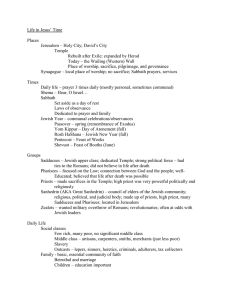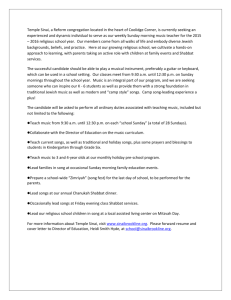Chanukah
advertisement
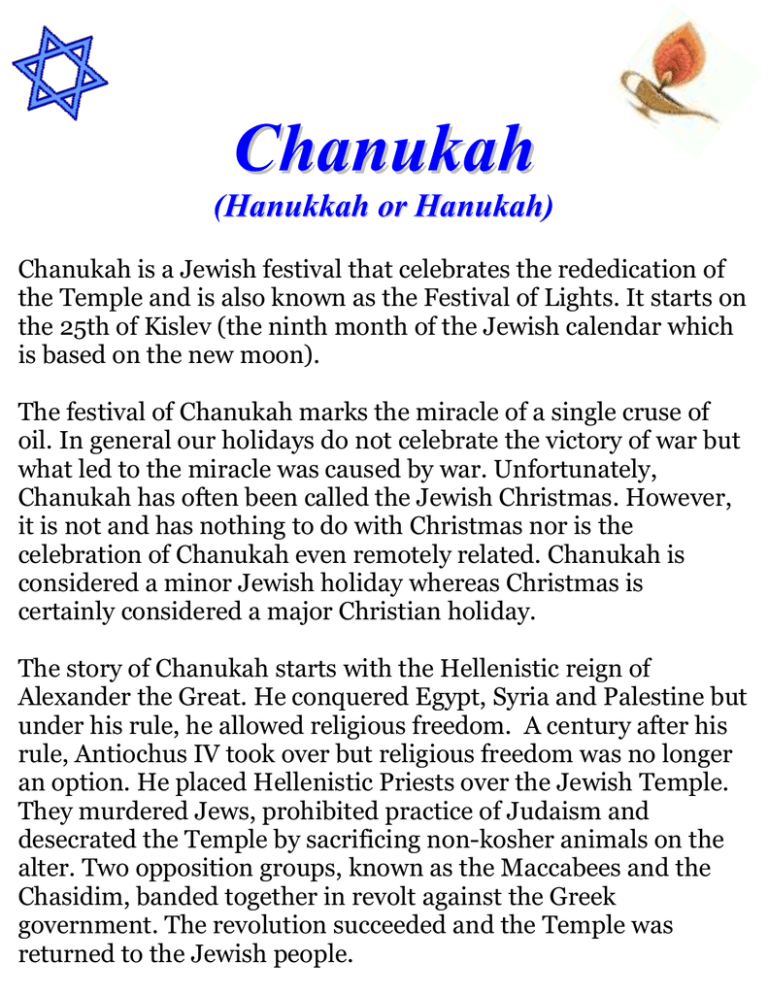
Chanukah (Hanukkah or Hanukah) Chanukah is a Jewish festival that celebrates the rededication of the Temple and is also known as the Festival of Lights. It starts on the 25th of Kislev (the ninth month of the Jewish calendar which is based on the new moon). The festival of Chanukah marks the miracle of a single cruse of oil. In general our holidays do not celebrate the victory of war but what led to the miracle was caused by war. Unfortunately, Chanukah has often been called the Jewish Christmas. However, it is not and has nothing to do with Christmas nor is the celebration of Chanukah even remotely related. Chanukah is considered a minor Jewish holiday whereas Christmas is certainly considered a major Christian holiday. The story of Chanukah starts with the Hellenistic reign of Alexander the Great. He conquered Egypt, Syria and Palestine but under his rule, he allowed religious freedom. A century after his rule, Antiochus IV took over but religious freedom was no longer an option. He placed Hellenistic Priests over the Jewish Temple. They murdered Jews, prohibited practice of Judaism and desecrated the Temple by sacrificing non-kosher animals on the alter. Two opposition groups, known as the Maccabees and the Chasidim, banded together in revolt against the Greek government. The revolution succeeded and the Temple was returned to the Jewish people. The Temple was rededicated. According to tradition recorded in the Talmud, there was very little oil left to light the candelabrum in the Temple. This was suppose to burn throughout the night every night. The little bit of oil should have only lasted for one day but miraculously burned for eight days. This allowed enough time to prepare a fresh supply of oil. Thus comes the Miracle of Lights. Traditions (There are several during the Chanukah festival) First is the Menorah or hanukiyah. It holds nine candles: eight, each representing the eight nights that the oil burned and the ninth, the shamus (servant), the tallest one, is used to light the other candles. Blessings over the candles are said and songs and stories are shared. Each night of the holiday, the candles are lit (from right to left) until the eighth night when all 9 are glowing. Second, FOOD – what holiday or festival is celebrated without some good food. In this case, there are latkes or potato pancakes and sufganyiot or jelly doughnuts. Third, while gift-giving is really not a traditional part of the holiday, gelt or coins are given. A small amount of money is given, usually enough to buy some special small treats. Today, that has changed because of the influences of Christmas. And finally, the dreidel, a square top, imprinted with four Hebrew letters, each with a special meaning. The dreidel tradition came from the time of Antiochus as a way to conceal the studying of the Torah, so they would pretend they were gambling with the top. Today most play for matchsticks, pennies or even chocolate coins. The festival of Chanukah is a lot of fun for both kids and adults. Different families celebrate it with differing traditions but all in all, the rededication of the Temple and the cruse of oil that lasted eight days is the core of Chanukah.
